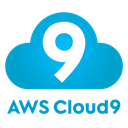Top Runnable Alternatives for Streamlined Development Environments
Runnable is a powerful tool designed to accelerate your development workflow by providing full-stack, per-branch development environments. It helps teams ship faster by eliminating the overhead of managing complex staging servers, offering unique, up-to-date environments for every Git push. While Runnable excels at replicating services, databases, and integrating with testing frameworks like Selenium/WebDriver, you might be looking for a Runnable alternative that better suits your specific needs, budget, or existing tech stack. This article explores several excellent options that offer similar benefits, helping you find the perfect fit for your team.
Top Runnable Alternatives
If you're seeking a solution that provides similar benefits to Runnable – whether it's cloud-based IDEs, on-demand environments, or integrated development tools – these alternatives offer compelling features for improving your development and testing processes.

AWS Cloud9
AWS Cloud9 is a full-featured, browser-based IDE and code editor that can be used as a service or hosted locally. It's a strong Runnable alternative for teams already invested in the AWS ecosystem, offering a Cloud IDE, built-in terminal, and extensive developer tools. As a commercial web-based platform, it supports team collaboration and is extensible via plugins, making it a versatile environment for web development.

Ideone
Ideone.com functions as an online mini IDE and debugging tool, similar to a pastebin but with powerful compilation capabilities. While it doesn't offer the full-stack environment replication of Runnable, it's a fantastic free web-based Runnable alternative for quick code testing, compilation, and sharing. Its features include cloud coding, a cloud IDE, and a built-in compiler, making it ideal for rapid prototyping and debugging snippets.

Monaca
Monaca simplifies hybrid mobile app development using PhoneGap/Cordova with its comprehensive cloud-powered tools. Available as a freemium service on Mac, Windows, Linux, and Web, it provides a cloud IDE, command-line interface, and remote build capabilities. While more focused on mobile development, its cloud IDE and remote build features make it a viable Runnable alternative for teams needing streamlined mobile app development environments.

CodePicnic
CodePicnic allows developers to create full-stack code containers directly in the browser, running and sharing online code on real Linux servers with a web-based terminal. As a freemium web-based service, it's an excellent Runnable alternative for creating isolated, ephemeral environments, supporting Docker, and providing an embeddable IDE and terminal emulator. This makes it ideal for code sandboxes, tutorials, and quick environment setups.

Dockup
Dockup specializes in creating on-demand environments for running manual or automated tests, making it a direct competitor and strong Runnable alternative. Available as a commercial SaaS or self-hosted solution, Dockup leverages Docker and Kubernetes to provide robust, scalable environments for testing. This focus on on-demand testing environments aligns closely with Runnable's core offering, providing a powerful solution for continuous integration and delivery pipelines.
Choosing the right development environment tool depends heavily on your team's specific requirements, existing infrastructure, and workflow. Whether you prioritize integrated development environments, on-demand testing environments, or specific cloud integrations, the alternatives listed above offer compelling features that can enhance your development process and reduce the burden of environment management. Explore these options to find the best fit for your next project.